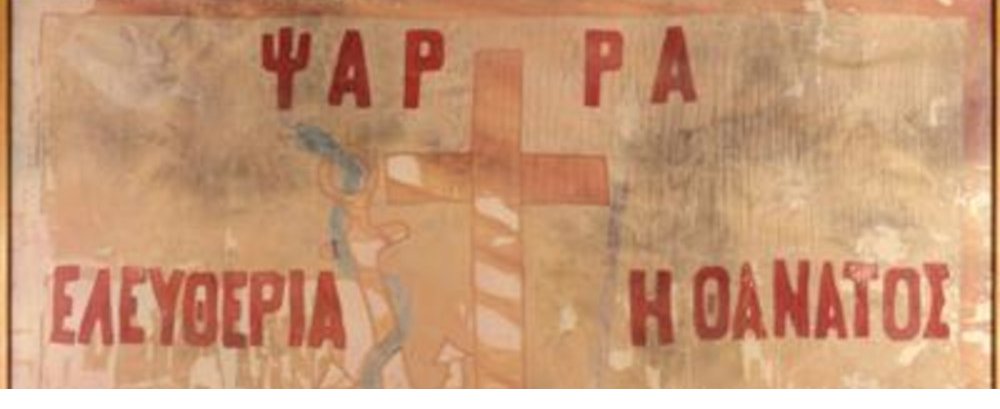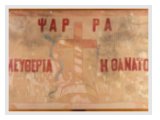
The small, yet important from a strategical point of view, island in the Aegean Sea played a key role during the War of Independence of 1821. By means of a powerful and well-equipped fleet, the people of Psara contributed vitally to the fight against the Ottoman Empire, participating in many sea fights and reinforcing the national effort for independence.
Psara's participation in the Greek War of Independence began from the first days of the fight. The fleet of Psara, composed of skilled seamen and warships, participated in a number of sea fights against the Ottomans, such as the naval battle of Gerontas and the naval battle of Samos.
The destruction of Psara occurred in response to the continuous resistance of the Greek people and their increasing success in naval battles. At the beginning of June 1824, the Ottoman fleet, led by Hüsrev Pasha, set out from Constantinople heading to Psara. The fleet consisted of approximately 140 ships and thousands of soldiers, with a view to destroying the island and crush the Greek naval force.
On 29 June 1824, the Ottoman fleet reached Psara. The islanders, being aware of the danger, prepared themselves to defend the island. Despite the heroic resistance of the people of Psara, the Ottoman preponderance was overwhelming.
On 21 June 1824, the Ottomans launched their main attack. By deploying the artillery and the infantry, the Ottomans gradually occupied the island, destroying houses and buildings. The resistance of the people of Psara was heroic, yet powerless against the huge force of the invaders.
The destruction was comprehensive. Over 18.000 people were killed or captured. Only about 3.000 managed to escape to other islands or mainland Greece. The island had been thoroughly destroyed and the fleet of Psara was crushed.
The sacrifice of Psara did not go unnoticed. It fuelled the spirit of resistance and unity in the fight for independence. The destruction of Psara inspired the Greek people to keep up their fight with even greater determination. This sacrifice has been ingrained deeply into the Greek people and has been passed down from generation to generation as an example of heroism and selflessness.
The sacrifice of the people of Psara inspired poets and authors to reflect their bravery and their heroism in their works. Dionysios Solomos, who is considered to be Greece’s national poet, wrote the poem “The Destruction of Psara” in honour of the island’s heroes:
On the blackened ridge of Psara
Glory walking alone
recalls the gallant young men
On her head she wears a crown
Made of what little grass
Remained on that desolate earth.
The destruction of Psara is one amongst the most tragic, but also heroic moments of the Greek Revolution. The sacrifice of the islanders was never forgotten and continues to be a source of inspiration and pride for the next generations. The island of Psara stands today as a monument of heroism, reminding everyone the value of freedom and self-sacrifice in the fight for justice and independence.
#ΕλληνικόςΣτρατός, #HellenicArmy





